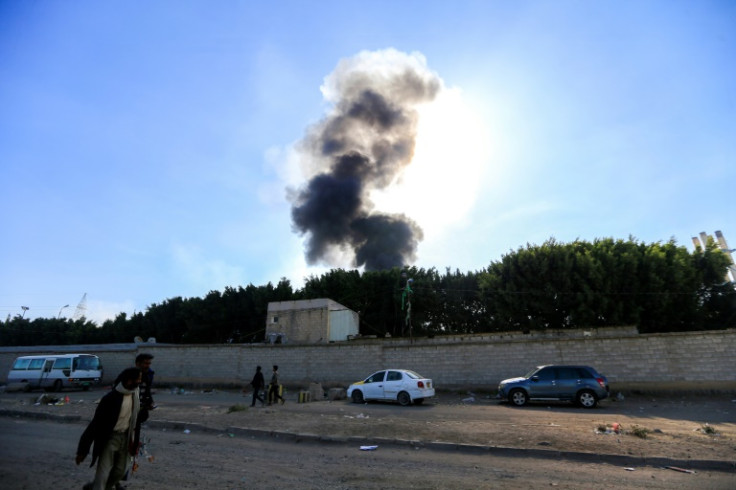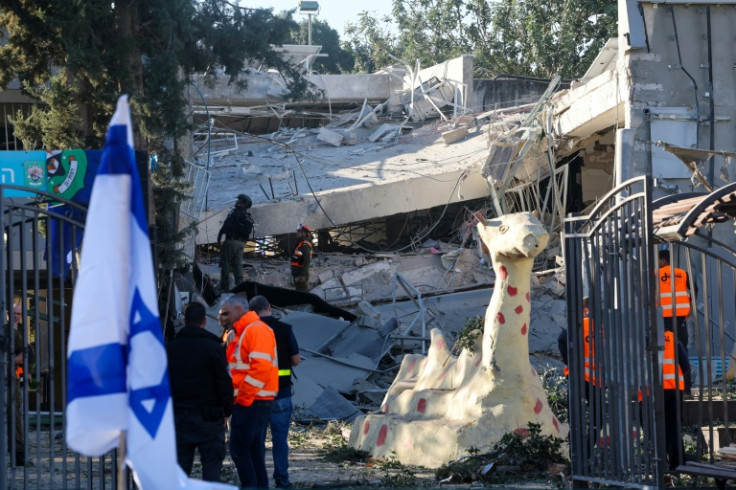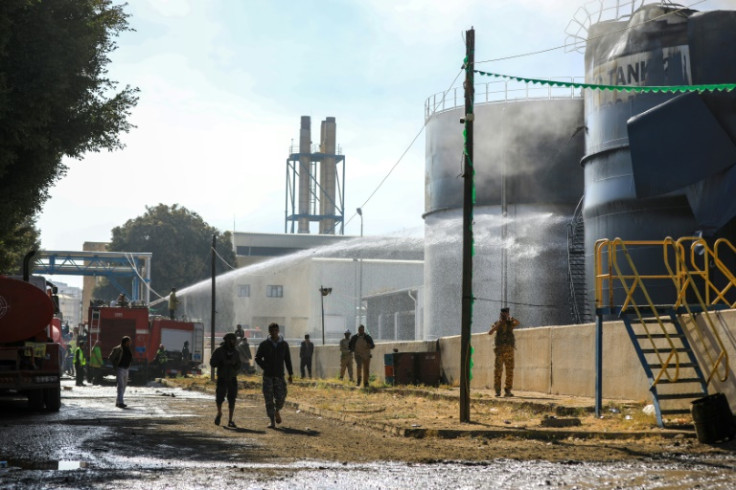Yemen Rebels Say Israeli Strikes Kill 9, After Missile Attack

Yemen's Iran-backed Huthi rebels said Israeli air strikes on Thursday killed nine people, after the group fired a missile toward Israel, badly damaging a school.
Israeli Prime Minister Benjamin Netanyahu threatened further retaliation.
The Huthis, who control most of Yemen's population centres, have repeatedly launched missiles at Israel since the Gaza war broke out more than a year ago.
Israel has previously hit back against targets in Yemen, but Thursday's were the first against the rebel-held capital Sanaa.
"The Israeli enemy targeted ports in Hodeida and power stations in Sanaa, and the Israeli aggression resulted in the martyrdom of nine civilian martyrs," rebel leader Abdul Malik al-Huthi said in a lengthy speech broadcast by the rebels' Al-Masira TV.
Al-Masira had earlier reported the raids that "targeted two central power plants" in and around Sanaa, while in Hodeida it said "the enemy launched four aggressive raids targeting the port... and two raids targeting" an oil facility.
It said the strikes killed seven people at Al-Saleef port, while two more were killed and others wounded in the strike on the oil facility.
Hodeida is a key entry point for fuel and humanitarian aid to impoverished Yemen, which has been ravaged for years by its own war.
Israel said it struck the targets in Yemen after intercepting a missile fired from the country, a strike the rebels subsequently claimed.
Huthi spokesman Yahya Saree said the rebels fired ballistic missiles at "two specific and sensitive military targets... in the occupied Yaffa area", referring to the Jaffa region near Tel Aviv.
Israel's military said it "conducted precise strikes on Huthi military targets in Yemen -- including ports and energy infrastructure in Sanaa, which the Huthis have been using in ways that effectively contributed to their military actions."
AFP photos from Ramat Gan, in the Tel Aviv area, showed part of a school building pancaked from an explosion, behind a sculpture of an animal with polka dots.
The military said initial inquiries showed "it is likely that the damage was caused by partial interception of the missile launched from Yemen and that the missile warhead was the part that exploded and damaged the school."
The rebels belong to the Iran-backed "axis of resistance," along with Lebanese militant group Hezbollah, which has been weakened after a conflict with Israel and the loss of its Syrian supply line following former president Bashar al-Assad's ouster.
"After Hamas, Hezbollah, and the Assad regime in Syria, the Huthis are almost the last remaining arm of Iran's axis of evil," Netanyahu said.
"The Huthis are learning and will learn the hard way, that those who strike Israel will pay a very heavy price for it."
The Huthi leader retorted: "We are fully convinced of our position and are ready to confront any level of escalation."
Israel's military had initially announced the interception of a missile launched from Yemen "before it crossed into Israeli territory".
Iran denounced the subsequent Israeli raids as a "flagrant violation of the principles and norms of international law and the UN Charter".
Palestinian militant group Hamas, at war with Israel in Gaza, called Israel's retaliatory strikes a "dangerous development".
Thursday's missile interception was the second this week, after Israel's military said it intercepted a launch from Yemen on Monday. The Huthis also claimed that launch, saying it was aimed at "a military target of the Israeli enemy in the occupied area of Yaffa".
Also Monday, an Israeli navy missile boat intercepted a drone in the Mediterranean after it was launched from Yemen, the military said.
The Huthi rebels have said they are acting in solidarity with Palestinians and pledged Monday to continue operations "until the aggression on Gaza stops and the siege is lifted".
On December 9, a drone claimed by Huthis exploded on the top floor of a residential building in the central Israel city of Yavne, causing no casualties.
In July, a Huthi drone attack in Tel Aviv killed an Israeli civilian, prompting retaliatory strikes on Hodeida which killed at least nine people, according to the rebels.
The Huthis have also regularly targeted shipping in the Red Sea and the Gulf of Aden, leading to retaliatory strikes on Huthi targets by United States and sometimes British forces.
Israeli military spokesman Daniel Hagari said the Huthis had become a "global threat," pointing to Iran's support for the rebels.
"We will continue to act against anyone, anyone in the Middle East, that threatens the state of Israel," he said.


© Copyright AFP 2025. All rights reserved.





















